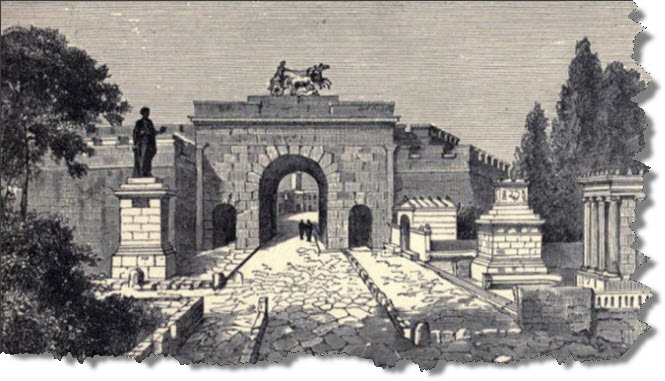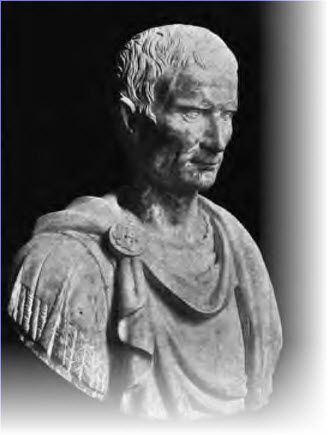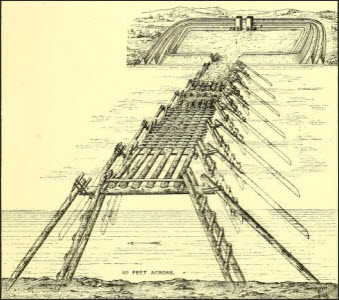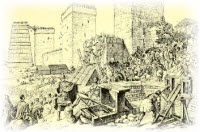Julius Caesar
| Roman Empire | Browse Topics | Alphabetical index | Site Map | Site News | Links |
 |
|||||

Julius Caesar
JULIUS CAESAR (full name Caius Julius Caesar), was a celebrated Roman statesman, historian, and general, born July 12,100 B.C.; died March 15, 44. He was the son of a Roman praetor of the same name, studied at Rhodes, and married Cossutia, a wealthy lady of high standing, but divorced her to marry Cornelia, daughter of Cinna. Cinna being one of the principal enemies of Sulla, dictator of Rome, his anger was so excited that Caesar fled from Rome for safety, but returned after the death of Sulla in 78 B. C. Julius Caesar became an advocate for the cause of the people, and gained many high civil and military honors, passing rapidly through the different grades of high office. He rose to influence as a contemporary of Cicero, Brutus, Antony, and other Roman leaders.
His high birth, relationship to Marius and China, and great personal talents made him a leader of the popular party. By his generosity and affable manners he won the friendship of the Italians, and attempted to secure the Roman franchise for the Latins beyond the Po River. In 66 Caesar became curule aedile, in which position he extended his popularity by lavishing vast sums of money on public buildings and splendid public games.
Caesar Crossing the Rubicon
In 63 Caesar was accused of being implicated in the famous conspiracy of Catiline, which
checked his career for a time. The people elected Cicero to the consulship in preference
to Caesar, but the latter formed an alliance with Crassus, who possessed colossal wealth,
in order to become master of the Roman world. When Pompey returned from Asia, he readily
supported Caesar, largely because he desired to have his own plans in Asia ratified and
wanted concessions made to his troops. The triumvirate between Caesar, Pompey, and Crassus
was now solidified; Caesar was elected to the consulship and Cicero's desire for
constitutional government was defeated. Julius Caesar won public favor by distributing land among
the poor and supporting the agrarian laws. He supported Pompey in his military requests
and relieved the knights of a portion of their taxes.

Bridge Built by Caesar Across the Rhine
Caesar hoped to conquer Western Europe for the Roman people. In this way he hoped to gain victories equal to those of Pompey in the East, and with this end in view he secured a military command. In 59 he proceeded to cross the Alps, where he operated nine years, subjecting the country to the Romans. His military achievements included the defeat of the Helvetii in 58, killing over 150,000, while the survivors were permitted to resume their pastoral and agricultural pursuits. He next proceeded to the region of the Rhine, where he defeated Ariovistus, a German prince. In 57 he made a second campaign, in which he attacked the Belgic tribes and defeated them; then subdued the Venetii, and later crossed the Rhine and suppressed a widespread rebellion in Gaul. In the year 55 he made his first invasion of Britain and the following year made a second invasion, which resulted in the subjugation of the Britons. His victories in Britain were recognized as extremely important by the Roman senate. Two thanksgiving periods were decreed, a distinction accorded to him for the first time.
Julius Caesar: [1] [2]
More ....

A Besieged City
| Privacy Policy | Site News | About | Site Map |